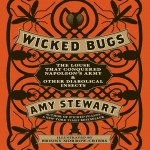education
Imagine you have two months to live. What would you do, what would you write to your friends and colleagues? I don't know if I have two months - do you? No one does. Life is an ongoing risk, an opportunity to embrace challenges, to coast, or to be numb.
One of my dear colleagues, Dr. Richard Pierre Claude, a scholar of human rights, wrote an extraordinary letter to his friends and colleagues, exactly two months before he passed away. I have no idea if he knew that he had two months before the end, but his first sentence in this letter is the following:
{written on Martin Luther King…
(This post is part of the new round of interviews of non-academic scientists, giving the responses of Jennifer Saam, who translates between different departments at a medical diagnostic laboratory. The goal is to provide some additional information for science students thinking about their fiuture careers, describing options beyond the assumed default Ph.D.--post-doc--academic-job track.)
1) What is your non-academic job?
I am a medical science liaison at a medical diagnostic laboratory.
I work in the medical services department and this department maintains the scientific integrity for the…
If you haven't heard (wouldn't blame you if you hadn't), in the Alabama State House, a legislator switched parties--from the Republican Party to the Democrats, which, given the trend, especially in the South, over the last few decades is surprising. What's even more surprising is why he switched--teacher bashing:
Chalk up another Democratic win this week: Alabama State Rep. Daniel Boman, who entered the legislature as a Republican in November, is switching parties to become a Democrat after he says the GOP went too far in attacking teachers in the state...
Now there's Boman, who's walking…
Twitterers of the world.
We've all heard the questions. The murmurs. The doubts and whispers.
"Twitter is a waste of time," they say.
"People are just talking about what they ate for breakfast, or what their dog is doing."
"No good can come of it, no way to spend work time, turning us all into ADHD cases."
The mother of all social media doubter articles came out a little while back, The New York Time's Bill Keller on The Twitter Trap:
I don't mean to be a spoilsport, and I don't think I'm a Luddite. I edit a newspaper that has embraced new media with creative, prizewinning gusto. I get that…
(This post is part of the new round of interviews of non-academic scientists, giving the responses of Matthew Schlecht, a chemist by training who runs his own technical translation service, Word Alchemy Translation. The goal is to provide some additional information for science students thinking about their fiuture careers, describing options beyond the assumed default Ph.D.--post-doc--academic-job track.)
1) What is your non-academic job?
I am a free-lance technical translator working into English from Japanese, German, French, Spanish and occasionally Russian, in the areas of chemistry,…
I had intended last Wednesday's post on the Many-Worlds variant in Robert Charles Wilson's Divided by Infinity to be followed by a post on the other things I said when I did a guest lecture on it for an English class. What with one thing and another, though, I got a little distracted, and I'm only getting around to it now.
Anyway, this was a guest lecture for a class on Science Fiction taught by a friend in the English department. To give you an idea of the stuff they covered, here's the "required books" list from the syllabus:
The Very Best of Fantasy & Science Fiction. (VBFSF)…
Before one worries about how teachers are performing, it would seem that getting children to attend school regularly would be an important first step, which is a reason one Floridian teacher opposed teacher student testing:
When Florida proposed strict accountability measures, teachers, parents and administrators pushed back. They argued that the proposed system -- basing renewal of teacher contracts and at least half their raises on how well students did on standardized tests -- would hold them responsible for factors in students' lives beyond their control.
"I am not a puppet master; I can'…
(This post is part of the new round of interviews of non-academic scientists, giving the responses of Richard Lobinske, a Hazardous Waste Manager (meaning he handles chemicals, such as these decades-old pesticides, not particularly noxious low-level employees). The goal is to provide some additional information for science students thinking about their fiuture careers, describing options beyond the assumed default Ph.D.--post-doc--academic-job track.)
1) What is your non-academic job?
Hazardous Waste Manager. I oversee a county household hazardous waste collection program that also handles…
As I've mentioned before, I'm schedule to teach a class on "A Brief History of Timekeeping" next winter term as part of the Scholars Research Seminar program. Even though I have a hundred other things to do, I continue to think about this a lot.
One of the goals of the course is to introduce students to the idea of doing research. This was primarily conceived as a humanities/ social sciences sort of thing, so most of the discussion I've seen about these has been in terms of library research. Of course, as a physicist, I very rarely need to look things up in the library. when I think about…
Amy Stewart's new book Wicked Bugs: The Louse That Conquered Napoleon's Army & Other Diabolical Insects takes a fairly trivial concept - a collection of historical anecdotes and icky factoids about dangerous insects - and executes it remarkably well. The book is well-written and has a non-cloying sense of humor ("she's just not that into you," begins the section relating how female praying mantids eat the males). Briony Morrow-Cribbs lends her insect illustrations (see a NYTimes slideshow of her ink illustrations here), and Anne Winslow's design plays off the concept of a vintage…
I learned today that the National Georgraphic Channel video I mentioned last week has actually already aired on the network. It was last week's episode of the series "Naked Science," titled Living in a Parallel Universe.
I haven't seen it, obviously, but it's running again, tomorrow (the 26th), at 4pm (Eastern (US) time). Set your DVR accordingly.
(I'm also very pleased to have learned of the air date via email from Alan Guth...)
The Rap Guide to Evolution Music Videos, sponsored by the Wellcome Trust.
I've been exploring the use of rap and pop culture to teach science and mathematics, ranging from Lupe Fiasco to Linkin Park, but that topic is for another day. But anyone interested in evolution, whether student or teacher, could find this "Evolution Rap" a refreshing approach.
Bottom line: learning should always be this fun.
Lyrics:
"Yo, yo, the Origin of Species
Ain't no feces, dawg, believe me..."
And that's all I could think of
So then I thought, this needs to be re-written
By looking at the similarities in…
I'm teaching our upper-level lab course this term, where I do a two-part experiment on laser spectroscopy. The first part is to calibrate the free spectral range of a homemade Fabry-Perot interferometer, and the second part is to use that Fabry-Perot as a frequency marker to calibrate a diode laser scan across the rubidium hyperfine spectrum, allowing a measurement of the Rb ground-state hyperfine splitting.
That's a bunch of jargon, the details of which don't really matter. What matters is that this is a lab that involves scanning the frequency of a particular laser through some range of…
(This post is part of the new round of interviews of non-academic scientists, giving the responses of Amy Young, who runs her own soap-making business. The goal is to provide some additional information for science students thinking about their fiuture careers, describing options beyond the assumed default Ph.D.--post-doc--academic-job track.)
1) What is your non-academic job?
The relevant part of my work is as partner and chief developer/producer at Foam on the Range, which makes and sells soaps, lotions, and other bath/cosmetic-type products. My business cards say "Saponifier in Chief". It'…
A very nice article by Ian Brown in this past Saturday's Globe and Mail, Don't discard the librarians.
He very nicely summarizes the recent library/librarian angst that's been free-flowing around the media and blogosphere over the last little while.
The world of librarians was thrown into a tizzy this week - it doesn't take much these days - when the Windsor-Essex Catholic District School Board announced it will shut its school libraries and dump all but four of its library technicians.
*snip*
That was the tip of the iceberg. While Windsor defended its slash, top-level librarians attended a…
I find reading economist Brad DeLong interesting since, even though I don't always agree with him on economics, he approaches his subject with the humility that scientific disciplines brutally instill in their faithful practitioners. This was an interesting notion regarding the future of economics education:
It is the scale of the catastrophe that astonishes me. But what astonishes me even more is the apparent failure of academic economics to take steps to prepare itself for the future. "We need to change our hiring patterns," I expected to hear economics departments around the world say in…
. . . they could have. Or pretty darn close, at least - they just needed to visit one of the many European cabinets of anatomical curiosities, to see the work of anatomists like Honore Fragonard.
Fragonard's eighteenth-century ecorches were the clear precursors to Gunther von Hagens' "Body Worlds" exhibits: preserved, injected, partially dissected bodies in lifelike, dramatic poses, with ragged strips of muscle draped like primitive clothing over exposed vessels and nerves. The effect is eerie - like a Vesalius illustration sprung to (half-)life:
Man with a Mandible
Several of Fragonard's…
I have a whole pile of science-y book reviews on two of my older blogs, here and here. Both of those blogs have now been largely superseded by or merged into this one. So I'm going to be slowly moving the relevant reviews over here. I'll mostly be doing the posts one or two per weekend and I'll occasionally be merging two or more shorter reviews into one post here.
This one, of Sharing, Privacy and Trust in a Networked World, is from November 19, 2011.
=======
OCLC's newest state of the library world/environmental scan report was published a few months ago: Sharing, Privacy and Trust in a…
A CSPO webcast entitled "New Tools for Science Policy" asks an interesting, if somewhat odd, question about science and art: "Can art and religion serve as methods for governing emerging science and technology?"
More details:
Tuesday, May 24, 2011, 5:30 p.m. EDT (webcast will be here)
Participants:
Dr. Greg Graffin, Recent author of Anarchy Evolution, professor of evolutionary biology at Cornell University, and lead singer of Bad Religion, one of the most successful punk rock bands in the world.
Steve Olson, Co-author with Dr. Graffin of Anarchy Evolution, freelance writer, and former Special…
In keeping with this week's unofficial theme of wibbling about academia, there's an article at The Nation about the evils of graduate school that's prompted some discussion. Sean says more or less what I would, though maybe a little more nicely than I would.
I wouldn't bother to comment further, except this spurred Sean to solicit career advice for scientists looking to leave the academic track. Which reminded me that a couple of years ago, I did a bloggy Project for Non-Academic Science (name chosen to have the same acronym as a prestigious journal, because it amused me to do so), where I…


